75th anniversary of iconic photo of Iwo Jima flag raising
The moment became a symbol synonymous with the Marine Corps.
Sunday marks the 75th anniversary of U.S. forces raising a flag on Iwo Jima, a brief moment in time captured in an iconic photograph that both recognized one of the World War II's bloodiest battles and became a symbol synonymous with the Marine Corps.
On Feb. 23, 1945, the fighting on the small volcanic island of Iwo Jima had been raging for five days, with both American and Japanese forces suffering heavy casualties -- eventually more than 6,500 Americans and 21,000 Japanese troops would be killed over 36 days of fighting.
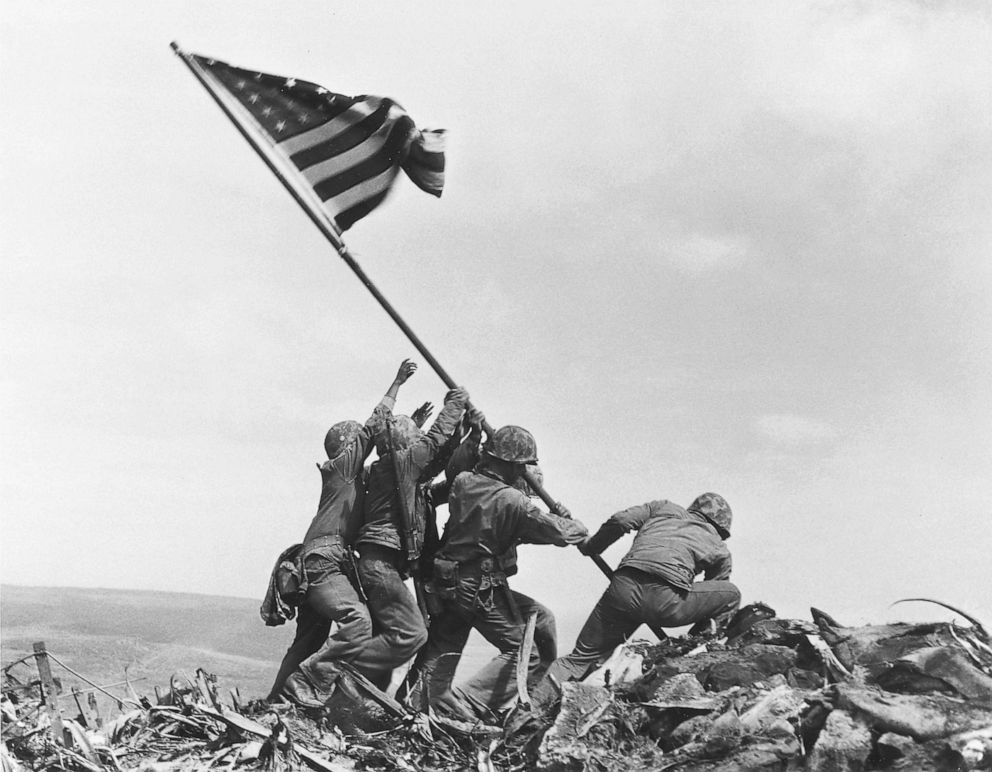
That day, photographer Joe Rosenthal of The Associated Press hurriedly snapped a photo of six Marines who'd been ordered to raise a flag atop Mount Suribachi, the island's highest point.
Appearing in newspapers nationwide, the photo became so popular it was made the centerpiece of a successful war bonds drive that included the six service members believed to have been in the photo.
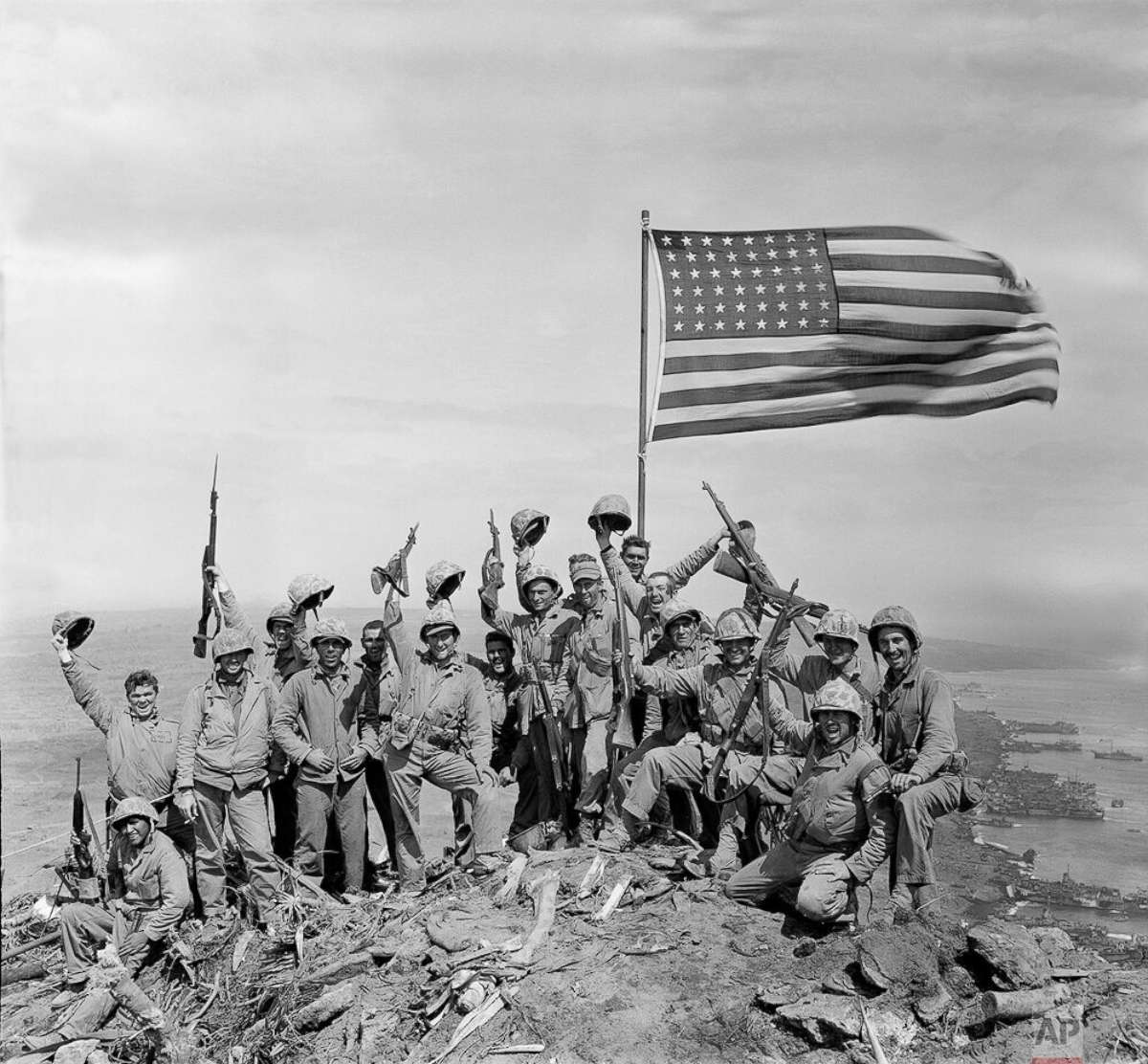
Rosenthal’s iconic photo won the Pulitzer Prize for Photography in 1945, just over two months after it was taken, and it became a life-sized model for the national U.S. Marine Corps War Memorial in Arlington, Virginia, which was dedicated in 1954.
The flag-raising Rosenthal captured actually was the second one on Mount Suribachi that day, as a small American flag was ordered replaced with a larger one.
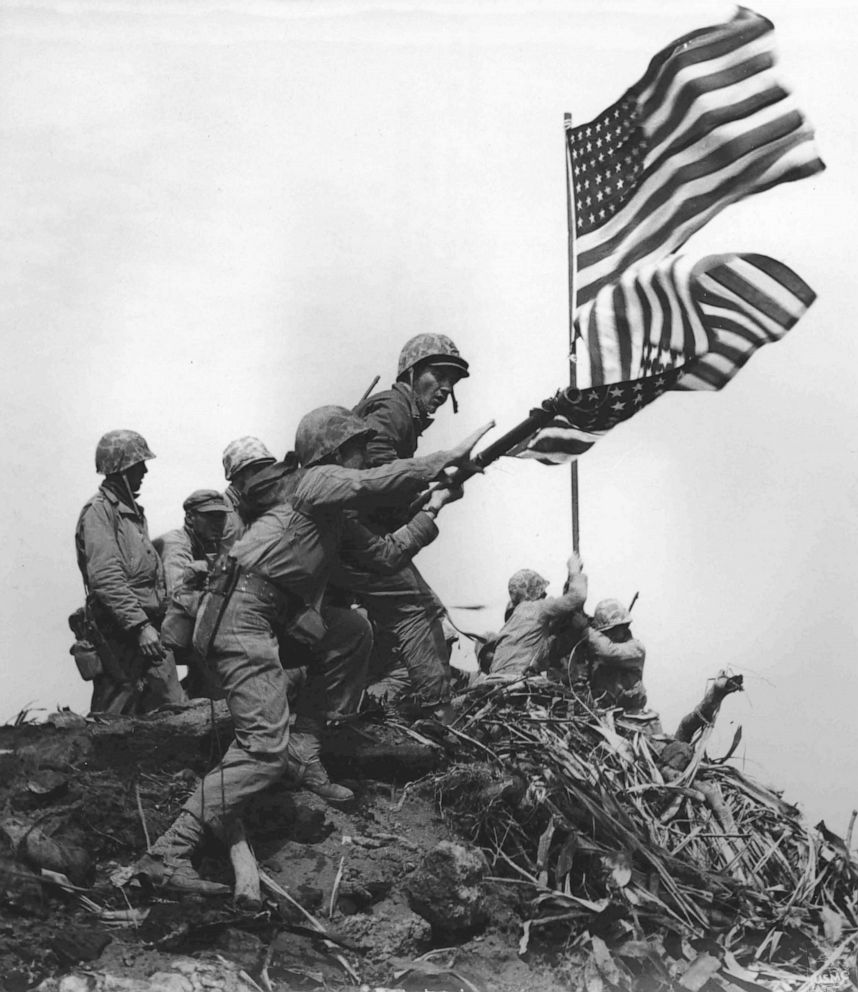
The separate flag-raisings and the fog of war led to some confusion around the identities of the six men seen in the photo.
In 2016 and 2019, the Marine Corps corrected the identities of two men long thought to have been in the photograph after being presented with new research collected by amateur historians. Their findings showed that Navy Petty Officer 2nd Class John Bradley actually was involved in the first flag-raising and that Marine Pfc. Rene Gagnon had helped carry larger flag up the mountain.
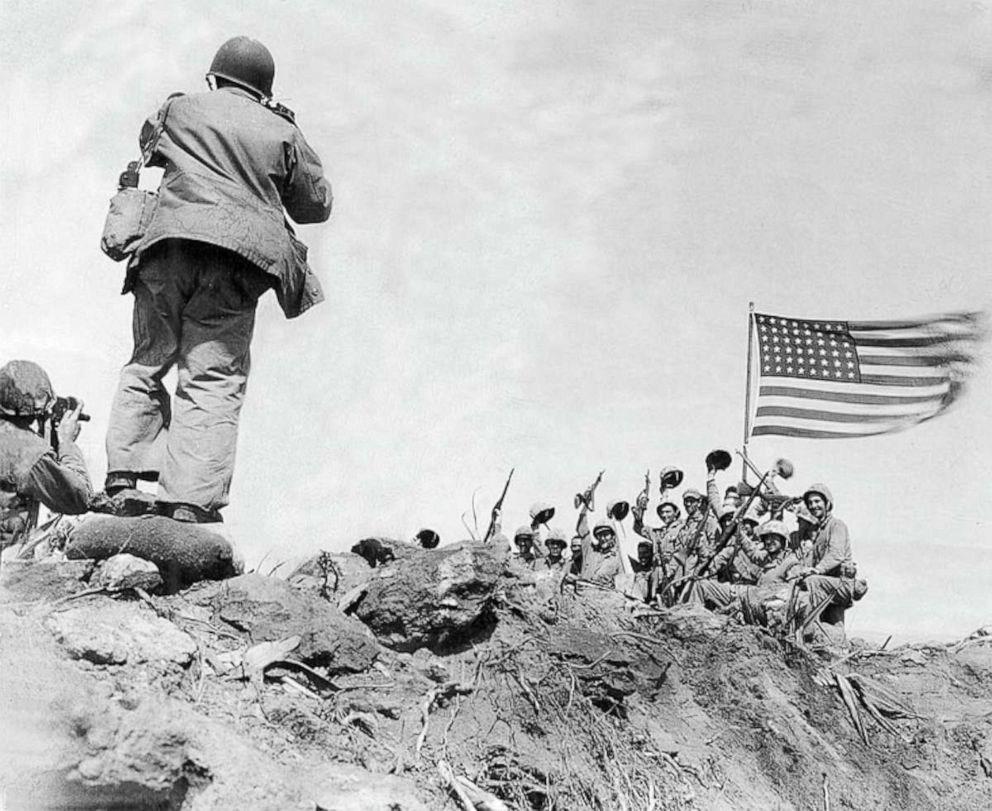
The six flag-raisers in the famous photo are now identified as: Cpl. Harlon Block, Pfc. Harold Keller, Pfc. Ira Hayes, Pfc. Harold Schultz, Pfc. Franklin Sousley and Sgt. Michael Strank.
The 75th anniversary of the taking of the photo is part of month-long commemorations that will culminate with a ceremony on Iwo Jima on March 27, the official end of the horrific battle.
"Let us resolve once again to never let it happen again," Gen. Mark Milley, chairman of the Joint Chiefs of Staff, said Feb. 17 at a commemoration event at the National World War II Memorial in Washington.
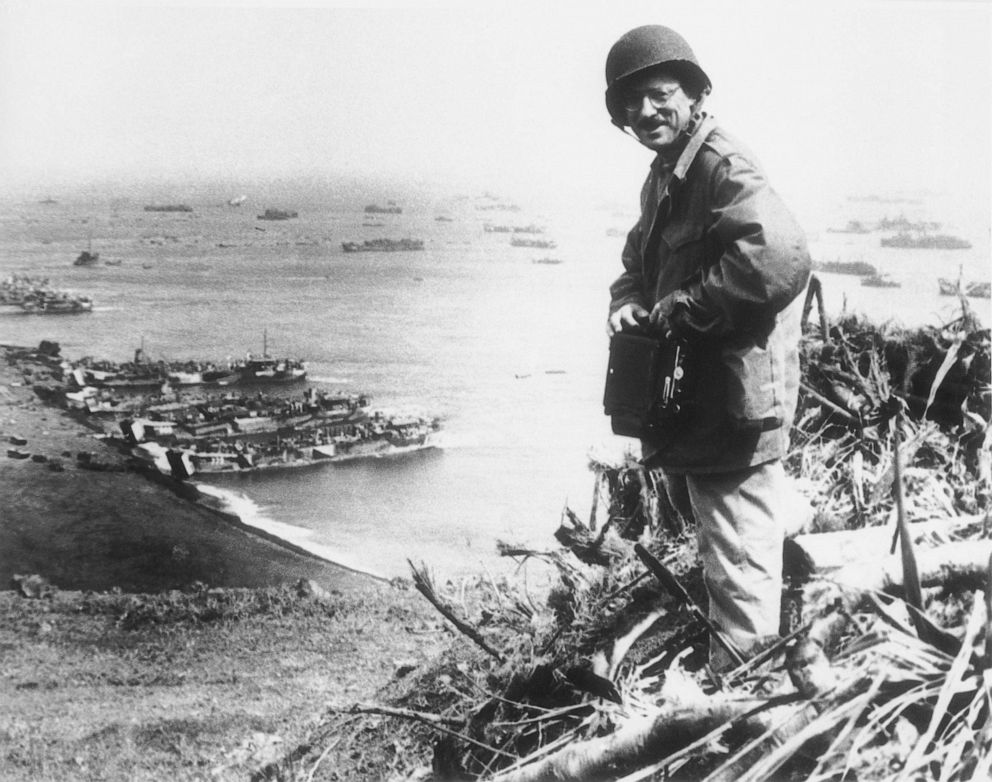
Milley, whose father, Alexander, fought on Iwo Jima, said that visiting the island last year with his Japanese counterpart was a humbling experience.
"Let us resolve that we're not going to have another great-power war, because the slaughter that is involved is beyond the imagination," he said. "It's beyond the pale."



